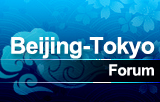'Made in China' is really starting to gain in prestige
By Chang Jun (China Daily USA) Updated: 2014-06-10 06:53
Bay Bridge spokesperson Victor Gauthier clarified last week that "no imported faulty materials", including bolts from manufacturer Shanghai Zhenghua Heavy Industry Co, should be a factor in the recent speculation about the stability of the $6.4 billion construction.
The San Francisco Chronicle reported on May 16 that out of the 274 rods that anchor the eastern end of the new bridge's suspension span, 205 have misaligned since they were installed and are now hazardously close to sharp-edged plates in the interior of the span. Engineers say a major earthquake could wrench the rods into the plates and damage them.
In response to the safety concerns, Gauthier reiterated that the current issue is maintenance of the rods' alignment and is not due to any imported faulty materials. "The rods themselves are from the US and the steel plates are from Shanghai, China," he said. "We inspect these over and over again, we put these through a tremendous amount of tests and quality assurance and quality control before fabrication starts."
Hopefully, Gauthier's statement will ease the worries of people who tend to disparage made-in-China commodities. Usually, they have a deep-rooted mentality that the "Made in China" label is tainted with a huge number of shoddy and dangerous products, or that Chinese manufacturers deliberately and habitually widen profit margins through reductions in quality.
These worriers now have reason to think twice.

In its 2014 "Made In" report released on March 6, the largest brand consultancy in the Asia Pacific, FutureBrand, ranked China No 9 overall based on research into the reputations of countries of origin with consumers worldwide.
FutureBrand's survey listed three Asian countries in its top 10 list of countries of origin brands, with Japan being No 4, China No 9 and South Korea No 10.
FutureBrand president for the Asia Pacific region Sarah Reiter explained that country of origin has multiple layers of definitions, including where raw materials are sourced, where the product is designed, where manufacturing takes place, where final assembly is completed, and finally, where the company is incorporated.
"Country of origin serves as an important heuristic that provides consumers with a frame of reference to guide their brand choices," Reiter said. "Based on our research, where a product 'originates from' is more important to consumers than its price, availability or style."
Overall, China performed most strongly in the electronics (No 5), automotive (No 9), and fashion (No 10) sectors. This is good news for China businesses and brands, which are shrugging off negative stereotypes as being "cheap, low-skill, low-tech", said Reiter.
Like Taiwan and Japan in previous decades, the Chinese mainland is now shifting towards being associated with 'modern, sophisticated, high-tech', she added.
Some of the companies at the forefront of changing China's perceived stereotype are technology companies such as Alibaba, Xiaomi and Lenovo, carmaker Geely and meat producer Shuanghui (now WH Holdings), according to the FutureBrand report.
These companies have mostly come to global prominence through major strategic acquisitions of foreign firms, such as Lenovo's acquisition of IBM's ThinkPad and Geely's marriage with Volvo, through which they upgraded their brand's image.
On May 5, the committee of Edison Awards, one of the US' leading innovation recognitions, honored Yang Yuanqing, chairman and CEO of Beijing-based Lenovo, with this year's Edison Achievement Award, along with Elon Musk, CEO of Tesla Motors and CEO/CTO of Space X.
Multinational high-tech giant Lenovo, with a US branch in Morrisville, North Carolina, is the biggest PC maker worldwide, with products including tablets, smartphones, workstations, servers, electronic storage devices, IT management software and smart televisions.
Yang is the first person from Asia to receive the Edison Award and was recognized as a corporate leader of inspiration and innovative spirit. Dr Paul Jacobs, executive chairman of Qualcomm and a past Edison Award recipient, called Lenovo an incredible startup – No 1 PC maker worldwide, No 4 smartphone maker worldwide, with $5 billon acquisitions executed so far this year.
Polishing the tarnished label of "Made in China" may take time, but worldwide consumers' perceptions of the label are indisputably changing. Just look at Xiaomi, the affordable and feature-rich smartphone, a homegrown business representing a new generation of Chinese brands that is ranked No 3 on Fast Company's 2014 Most Innovative Companies list and also featured on Boston Consulting Group's list of innovative enterprises.
Contact the writer at junechang@chinadailyusa.com.










